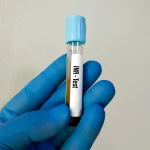What is iron deficiency?
Iron deficiency is when there’s not enough iron in your body.
Iron is an essential mineral for your body. Iron is needed to produce red blood cells, which are important for:
- a healthy immune system
- mental function
- muscle strength and energy
In red blood cells, iron forms part of a protein called haemoglobin. Haemoglobin transports oxygen through your blood. It carries oxygen from your lungs to all the cells in your body so they can work properly.
Your body can’t make iron, so you need to get it from your diet. If you don’t eat as much iron as you use each day, you become iron deficiency. Iron deficiency is the most common nutritional disorder in the world.
It’s important to have the correct amount of iron in your body. If you have low iron levels, you can develop anaemia. If you have too much iron, it can be toxic.
What are the symptoms of iron deficiency?
If you have iron deficiency, you may not realise it as you may just feel tired and run down.
Low iron symptoms include:
- feeling fatigued (tired), listless and weak
- short of breath, dizzy and light-headed
- struggling to concentrate and remember things
- performing poorly at school or work
- getting infections
- behaviour problems in children
- decreased libido (sex drive)
These symptoms can also be caused by other conditions.
What causes iron deficiency?
There are 3 main causes of iron deficiency:
- not eating enough iron-rich foods
- trouble absorbing iron
- blood loss
Not eating enough iron-rich foods
Your body can store iron but it can’t make iron. Iron must come from your diet.
Some people need more iron than others, such as:
- children
- teenagers (especially females)
- females who have periods
- people who follow vegetarian or vegan diets
- pregnant people
- people breastfeeding
Babies need breast milk or iron-fortified formula in their first year. Babies who have cow’s milk instead are more likely to become iron deficient.
Trouble absorbing iron
Iron in food is absorbed through your stomach and bowel. Some health conditions affect how much iron is absorbed, such as coeliac disease. If you’ve had stomach surgery, that can also affect how much iron you can absorb.
Blood loss
When you lose blood through bleeding, this means you lose iron too.
A common cause of too much blood loss is having heavy menstrual periods. In such cases, better menstrual control may help prevent iron deficiency.
Another common cause is bleeding in your stomach or bowel. This may be associated with:
- taking medicines such as aspirin or other anti-inflammatory medicines
- ulcers
- bowel polyps
- cancer
Other causes of blood loss can include:
- giving blood too often
- losing blood due to surgery
- some gut conditions such as inflammatory bowel disease
- infection with parasites such as hookworms
When should I see my doctor?
If you think you might have low iron levels, see your doctor. It’s important to find out why you have iron deficiency and what you can do about it.
Your doctor will arrange tests to look for causes of unexpected blood loss.
How is iron deficiency diagnosed?
To confirm that you have iron deficiency, your doctor will talk to you and examine you.
The only reliable way of telling if you are iron deficient is through a blood test to look at your iron levels and to check for anaemia.
You may also need other tests to find out what is causing the iron deficiency. You doctor may refer you to a specialist.
How is iron deficiency treated?
The right treatment for you will depend on the cause of your iron deficiency.
Getting iron from food
The aim of treatment is to bring your iron levels back to normal. This can be done a few ways. Depending on your needs, your doctor may recommend that you:
- eat more foods that are high in iron
- eat more foods containing vitamin C to help you absorb iron better
You can read more about foods high in iron.
Some foods and drinks stop you from absorbing iron properly. You can try and eat less of these foods, such as:
- tea
- coffee
- wine
- foods that contain calcium and fibre
Iron supplements
Your doctor may also suggest that you take iron tablets or liquid iron supplements.
If you take iron supplements, you will need to take them for several months and possibly longer.
They may make your stools (poo) dark, and can also cause constipation. Your doctor may suggest you take a stool-softener to help with this.
You should only take iron supplements under medical supervision. This is because:
- taking more than the recommended dose can cause iron poisoning
- they can also interfere with other minerals in your body
- they can interfere with your immune system
Can iron deficiency be prevented?
Most people can prevent iron deficiency by getting enough iron in their diet. Check out the infographic above to find out:
- how much iron you need each day
- which foods are the best sources of iron
- how to include iron sources in your diet
Complications of iron deficiency
Iron deficiency can cause anaemia. This is when you don’t have enough red blood cells or haemoglobin in the blood because of too little iron.
Iron deficiency can also cause:
- a weakened immune system
- poor sports performance
- pregnancy complications


